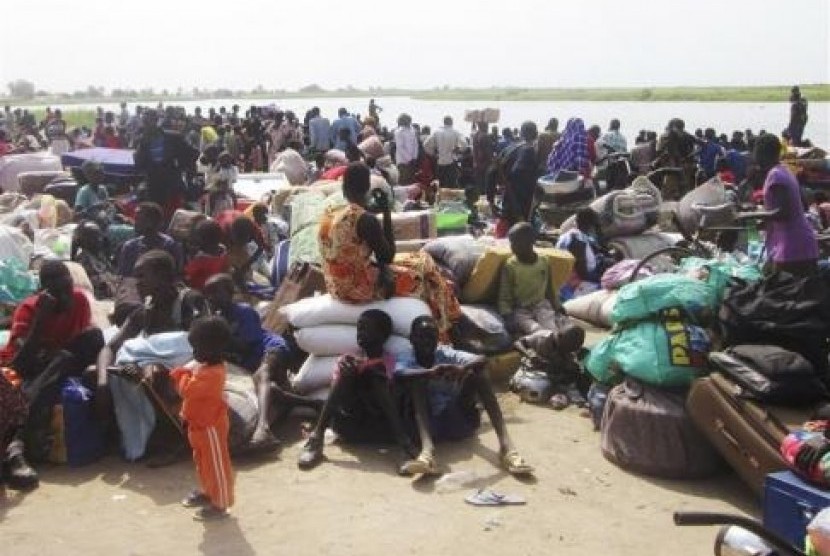REPUBLIKA.CO.ID, JUBA -- Almost 200,000 South Sudanese civilians are sheltering in UN bases, the largest number in 20 months of civil war, the United Nations said Monday.
A total of 199,602 civilians are now seeking safety behind the barbed wire of eight peacekeeping bases of the UN Mission in South Sudan (UNMISS), an increase of a third in just over a month.
The UN update came as peace talks between South Sudan's rivals continued in neighbouring Ethiopia on Monday, the last day for leaders to reach a deal to avoid possible sanctions.
Many fled into the bases, in six towns or cities including the capital Juba, as war broke out in December 2013. Many have never left because they are too terrified to venture out for fear of being killed, with the number continuing to rise.
Over 121,000 civilians are sheltering in Bentiu, capital of the northern battleground state of Unity, making the camp one of the largest settlements in the country after the capital Juba.
In Malakal, state capital of Upper Nile, over 16,000 have arrived since mid-July, taking the total there to 46,500, after aid deliveries via the Nile river were blockaded -- a restriction now lifted.
Over 70 percent of the country's 12 million people need assistance, the UN says, which is also combating a cholera outbreak that has killed 44 people, with some cases inside the crowded UN bases.
The war has forced 2.2 million people to flee their homes, with over 600,000 of those now refugees in the neighbouring nations of Ethiopia, Kenya, Sudan and Uganda.
Civil war began when President Salva Kiir accused his former deputy Riek Machar of planning a coup, setting off a cycle of retaliatory killings across the country that has split the poverty-stricken, landlocked country along ethnic lines.


